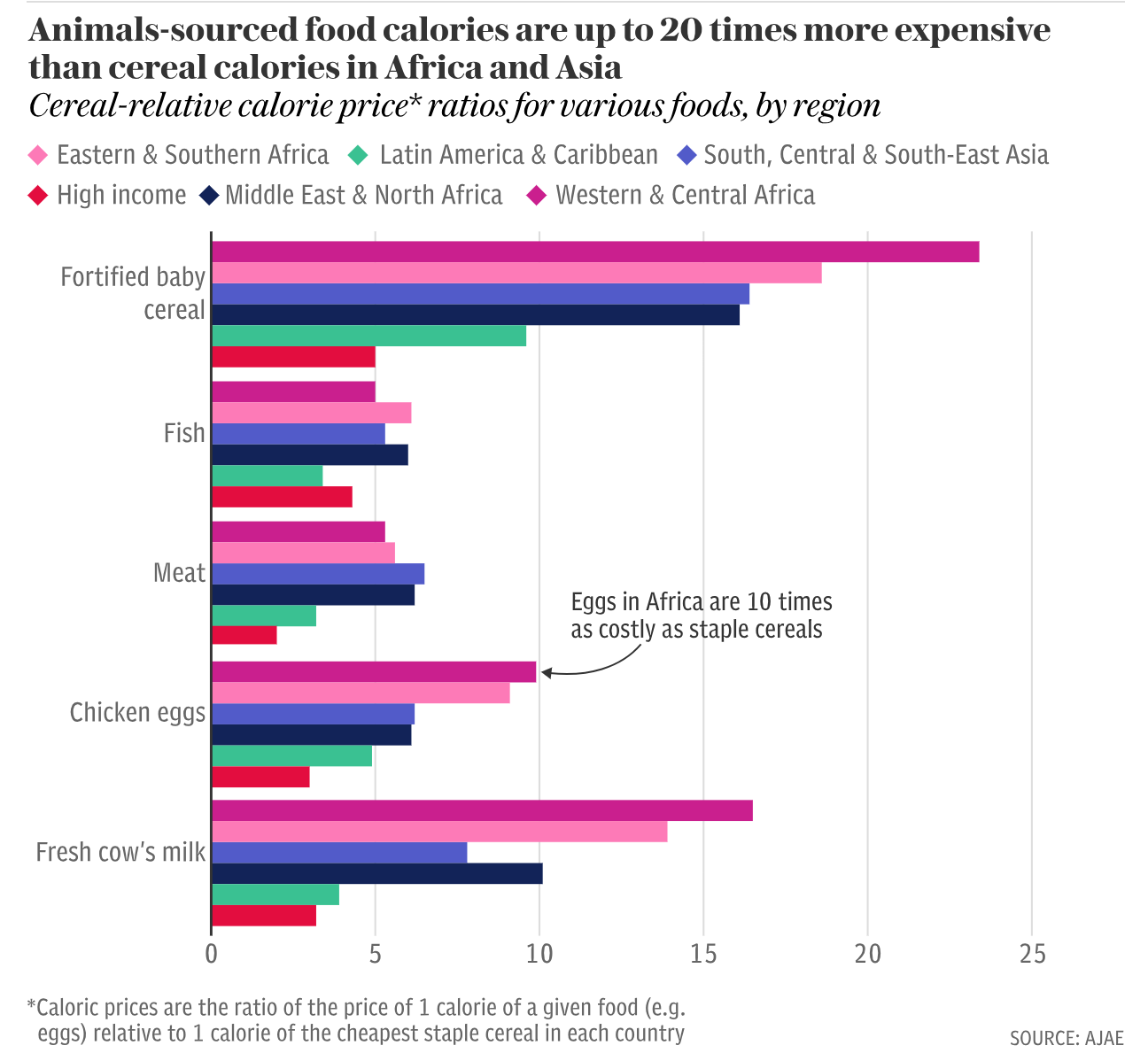When poorly nourished children in developing countries fall behind in their physical growth and become stunted relative to their healthier peers, they tend to fall behind in a lot of other things too: Their health, cognitive development, schooling, and eventually, their productivity and income as adults.
The high social and economic costs mean that there are high returns to preventing stunting, provided these actions happen early.
In poor countries most growth faltering takes place from six months of age until a child’s second birthday. This crucial turning point isn’t random: At roughly six months of age two important things happen.
First, children start to explore their exciting new world, crawling around more and mouthing random objects on the off chance they might be edible. In doing so, they expose themselves to infections, like diarrhea, as well as chronic leaky gut infections that are invisible but very damaging to child growth.
Second, a child starts to need more nutrients at six months that breast milk alone can’t provide, necessitating the introduction of solid foods dense in a wide range of nutrients.
When children are fed well and protected from infections, their bodies and minds develop quickly in infancy; but when these conditions aren’t met, they fall behind and may never catch up to their healthier peers, physically, socially or economically.
Charts courtesy The Telegraph (Data: American Journal of Agricultural Economics)
But getting sufficient nutrients into a baby’s growing body is not easy for poor households. For one thing, the infection problem means that a baby’s gut partially leaks away important nutrients; indeed, it’s been hypothesized that leaky gut children may actually need more nutrients than healthy children.
The other problem common to all babies everywhere is the small size of their stomachs: Young children can only eat small quantities in any given feed. This “small stomach problem” means that infants need nutrient-dense foods packed not just with calories, but fat, protein, and a wide range of micronutrients.
In poor countries, the standard household diet that infants are introduced to from six months of age onwards is often nutrient-sparse: Mashed-up rice, roots or tubers, or perhaps a watery porridge made of local grains. The solution is getting parents to feed their children more nutrient-dense foods.
Animal-sourced foods (ASFs) fit that bill, being rich in high-quality protein, essential fatty acids, and multiple micronutrients, as well as more mysterious growth-promoters, like the insulin-like growth factor 1 found in cow’s milk.
Recent studies from the Advancing Research on Nutrition and Agriculture (ARENA) project suggest that there are significant benefits to giving children more animal-sourced foods, but also significant constraints to doing so.

A new paper in The American Journal of Agricultural Economics studies the determinants of child growth among 130,000 children from 49 countries. We found that children fed two or more ASFs on a daily basis are six percentage points less likely to be stunted, with the growth benefits of dairy particularly large.
Another ARENA study of children in Bangladesh examined the benefits of dairy consumption by comparing children from dairy-producing households to households who didn’t produce any dairy products in the past year, including those who owned non-lactating cows. This study found that kids in milk-producing households were a whopping 10 percentage points less likely to be stunted than children in households that didn’t produce milk.
The broad consistency of findings across these and a wide range of other studies linking ASF consumption to child growth is good news. The bad news, however, is that animal sourced foods aren’t a low hanging fruit. Specifically, the AJAE study looked at why only around half of African and South Asian children are fed any ASF on a daily basis.
Findings reveal that the calories obtained from nutrient-rich ASFs like eggs and dairy are much, much, much more expensive than calories from basic staples. Egg calories in Africa south of the Sahara, for example, are roughly 10 times as expensive as cereal-based calories, while fresh milk is 15 times as expensive.
Meat and fish are generally cheaper than eggs and fresh milk because the former is tradeable over long distances—but still five or six times as expensive as cereal-based calories.
Understandably, then, poor households that prioritize getting enough calories to stave off hunger often find it prohibitively expensive to diversify away from starchy cereals to buy the nutrient-dense animal sourced foods that their children desperately need to achieve full physical and cognitive potential.
The solution, then, seems clear: Invest more in the productivity of the livestock and fisheries sectors wherever feasible, and use imports when local production isn’t viable.
In most countries, however, this means moving away from grain fundamentalism; that is, from agricultural policies heavily biased towards cereals at the expense of more nutrient-rich foods. There are plenty of calories in the world; what poor people need now is higher quality calories at more affordable prices.
Derek Headey is a Senior Research Fellow with IFPRI’s Poverty, Health and Nutrition Division. This post first appeared in The Telegraph.







